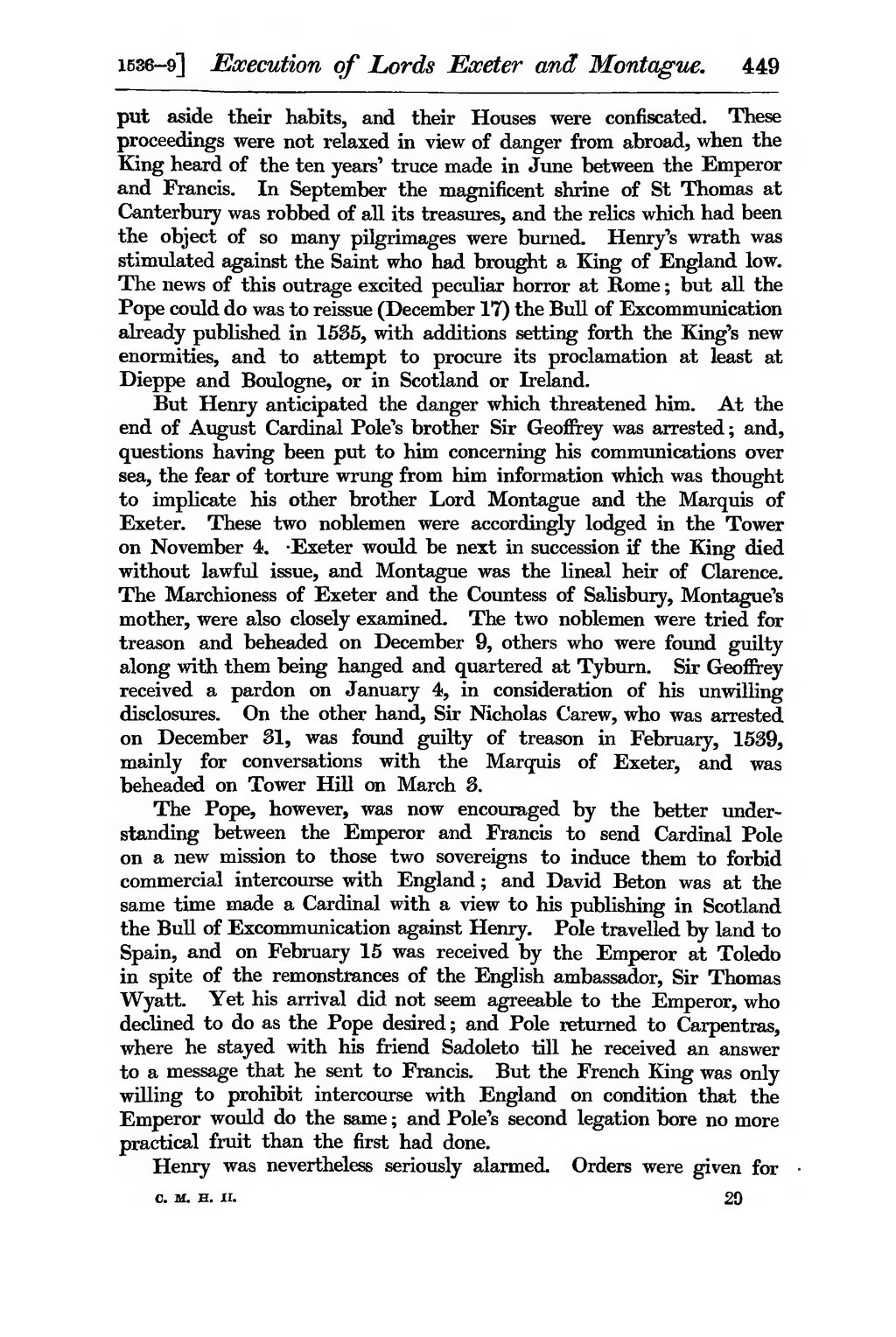put aside their habits, and their Houses were confiscated. These proceedings were not relaxed in view of danger from abroad, when the King heard of the ten years' truce made in June between the Emperor and Francis. In September the magnificent shrine of St Thomas at Canterbury was robbed of all its treasures, and the relics which had been the object of so many pilgrimages were burned. Henry's wrath was stimulated against the Saint who had brought a King of England low. The news of this outrage excited peculiar horror at Rome; but all the Pope could do was to reissue (December 17) the Bull of Excommunication already published in 1535, with additions setting forth the King's new enormities, and to attempt to procure its proclamation at least at Dieppe and Boulogne, or in Scotland or Ireland.
But Henry anticipated the danger which threatened him. At the end of August Cardinal Pole's brother Sir Geoffrey was arrested; and, questions having been put to him concerning his communications over sea, the fear of torture wrung from him information which was thought to implicate his other brother Lord Montague and the Marquis of Exeter. These two noblemen were accordingly lodged in the Tower on November 4. Exeter would be next in succession if the King died without lawful issue, and Montague was the lineal heir of Clarence. The Marchioness of Exeter and the Countess of Salisbury, Montague's mother, were also closely examined. The two noblemen were tried for treason and beheaded on December 9, others who were found guilty along with them being hanged and quartered at Tyburn. Sir Geoffrey received a pardon on January 4, in consideration of his unwilling disclosures. On the other hand, Sir Nicholas Carew, who was arrested on December 31, was found guilty of treason in February, 1539, mainly for conversations with the Marquis of Exeter, and was beheaded on Tower Hill on March 3.
The Pope, however, was now encouraged by the better understanding between the Emperor and Francis to send Cardinal Pole on a new mission to those two sovereigns to induce them to forbid commercial intercourse with England; and David Beton was at the same time made a Cardinal with a view to his publishing in Scotland the Bull of Excommunication against Henry. Pole travelled by land to Spain, and on February 15 was received by the Emperor at Toledo in spite of the remonstrances of the English ambassador, Sir Thomas Wyatt. Yet his arrival did not seem agreeable to the Emperor, who declined to do as the Pope desired; and Pole returned to Carpentras, where he stayed with his friend Sadoleto till he received an answer to a message that he sent to Francis. But the French King was only willing to prohibit intercourse with England on condition that the Emperor would do the same; and Pole's second legation bore no more practical fruit than the first had done.
Henry was nevertheless seriously alarmed. Orders were given for
